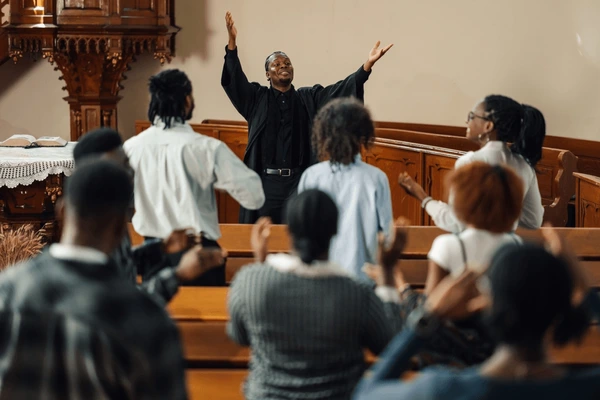The perceived conflict between reason and faith has defined much of modern religious discourse. Disbelievers dismiss faith as illogical superstition, while some religious communities view scientific inquiry and critical thinking as threats to belief. But what if this contradiction is false? What if there is space for communities that recognize both rigorous rationality and spiritual seeking? Unitarian Churches prove not only that such space exists, but that it’s extensive and welcoming.
The Secular Humanist in the Sanctuary
At first glance, a secular humanist — someone who finds meaning in humanity and ethics without supernatural beliefs — might seem an unlikely participant in religious community. Yet thousands of secular humanists find a genuine home in Unitarian Universalist congregations. These are not people compromising their principles or pretending beliefs they do not hold. They are discovering that religious community does not require religious belief.
The Unitarian Universalist Church welcomes secular humanists not as converts to be changed but as full participants whose perspectives enrich the community. There is no expectation that exposure to spiritual language or practices will ultimately lead to theistic belief. Humanism is honored as a complete and valid life stance, as worthy of respect as any theistic tradition.
This radical inclusion works because Unitarian Universalism is fundamentally non-creedal. There are no beliefs one must affirm to join. The seven principles that unite Unitarian Universalists are ethical commitments, not metaphysical claims. One can affirm the essential worth and dignity of every person regardless of whether one believes in God, spirit, or purely material existence.
What Draws Humanists to Religious Community
If secular humanists do not need God, why seek out religious community at all? The answer lies in what religious communities offer beyond theology — ritual and community.
Humans are meaning-making beings who benefit from regular practices that connect us to values larger than immediate gratification. Unitarian Churches provide structure for this meaning-making without requiring supernatural justification. A secular humanist can participate in a child dedication ceremony celebrating new life and community responsibility without invoking divine blessing. They can mark transitions, losses, and achievements within supportive community.
The all-inclusive church model practiced by Unitarian Universalists means that secular humanists are not simply permitted — their humanistic perspectives actively shape worship, education, and community life. Services might explore humanist philosophy alongside world religions. Discussion groups examine ethical questions from multiple frameworks, including purely secular ones. This integration makes humanists genuinely welcome rather than squeezed into a theistic mold.
Formative Dialogue Across Worldviews
One of the most valuable aspects of Unitarian congregations is the genuine exchange between secular and spiritual perspectives. Rather than debating who is right, members explore what different worldviews offer and how various frameworks address life’s profound questions.
A theist might share how prayer provides comfort during grief, while a humanist explains how meditation and community support serve similar functions without supernatural appeal. Both perspectives are recognized. Both challenge and enrich the other. This dialogue models the intellectual humility and curiosity that our polarized society desperately needs.
For secular humanists accustomed to religious spaces being hostile to questioning, the Unitarian approach is refreshing. Questions are not threats here — they’re welcomed. Doubt is not weakness — it’s honest engagement with complexity. This environment cultivates intellectual integrity while maintaining community bonds.
Raising Children in Diversity
Many humanist families join Unitarian Universalist congregations specifically for their religious education programs. These classes teach about world religions from a comparative, educational perspective rather than instructing children into specific beliefs. Children learn the stories, practices, and ethical teachings of different traditions while being encouraged to think critically and form their own conclusions.
For humanist parents, this provides what they want — exposure to religious knowledge, ethical formation, and community — without pressure to adopt supernatural beliefs. Children learn that people find meaning in many ways and that different frameworks can lead to similar ethical conclusions. This prepares them to navigate a pluralistic world with respect and understanding.

Common Ground in Action
While secular humanists and spiritual believers within Unitarian Churches may differ about theories, they find abundant common ground in ethics and action. Both can commit to justice, compassion, and working for a better world. Both can appreciate beauty, love deeply, and seek to live with integrity.
Social justice work provides particularly rich ground for collaboration. A theist might be motivated by the concept of humans made in the divine image, while a secular humanist acts from natural ethics — but both arrive at the same commitment to human dignity and equity. In practice, the motivation matters less than the action.
A Model for Pluralistic Society
Unitarian Churches that successfully integrate secular humanists with spiritual seekers offer a model for how pluralistic democracy should function. In these communities, people with fundamentally different worldviews work together, govern together, and support one another. They prove that shared values and mutual respect can transcend metaphysical differences.
For the secular humanist seeking community without compromising intellectual integrity, for the spiritual seeker who values reason and evidence, and for anyone tired of false choices between head and heart — all inclusive church offers a genuine home. Here, reason and faith are not adversaries; they’re companions on the journey toward truth, justice, and beloved community.
